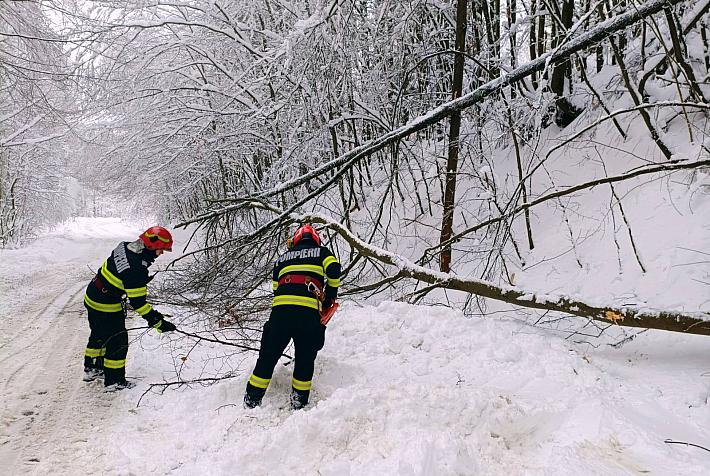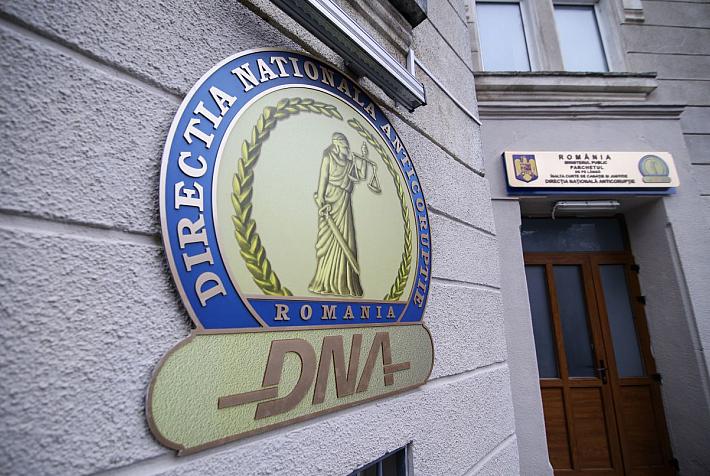Romania’s anticorruption prosecutors investigate EUR 431 mln bribes in a year

Romania’s anticorruption prosecutors have uncovered EUR 431 million worth of bribes in the corruption cases that they sent to court last year. This sum is comparable to the co-financing needed for Romania’s highway construction program for the next three years (2016-2018), according to the National Anticorruption Directorate – DNA’s chief prosecutor Laura Codruta Kovesi.
Kovesi presented DNA’s annual report on Thursday, February 25, in front of an audience that included Romania’s President and Prime Minister.
“Last year, we presented the biggest figures since this institution was established. This year, the results are much higher,” DNA’s chief prosecutor said in the beginning of her speech.
Romania's determination in carrying its anticorruption fight have been reflected in positive reports by the European Commission and the Council of Europe. However, as the DNA chief prosecutor said in her speech on Thursday, Romania also needed to work more on preventing corruption, otherwise the problems remain.
DNA sent to court over 1,250 defendants for top- and medium-level corruption last year. Five times more ministers and members of the Parliament were indicted last year, including former Prime Minister Victor Ponta, 5 ministers, 5 senators, and 16 members of the Deputies Chamber. “It’s the highest number of officials investigated by DNA in a year,” Kovesi pointed out.
The prosecutors also seized some EUR 0.5 billion worth of assets as part of the investigations they carried out last year.
Although DNA’s results were the best in the institution’s history, Kovesi emphasized that they also showed that corruption remained one of Romania’s big vulnerabilities. “These results force us to launch a discussion about the much-needed state reform on preventing and fighting corruption,” she said.
“There are sectors in the area of public acquisitions where corruption is generalized. Many times, contract assignment and the related payments are conditioned by receiving money disguised in fraudulent agreements or fictitious contracts,” she explained.
She added that many times the money paid as bribes came from other crimes, such as tax evasion and embezzlement, and, in the end, this affected all the country’s citizens. “Instead of covering wage payments or public investments, the money goes to the corrupt officials’ pockets.”
Corruption thus reflects in the quality and price of the public services, in the quality of the roads, in the higher price of pharmaceutical products, according to Kovesi.
The public budget is allotted in nontransparent ways, and, as long as this continues to happen, there will continue to be overvalued acquisitions and discretionary payments. This continues to generate an increasing number of corruption acts in some public institutions.
The number of people DNA sent to court last year for mismanagement of public funds tripled last year. Over 100 mayors and county council presidents were indicted for corruption. A third of Romania’s county council presidents were sent to court.
The DNA also made more efforts to recover the damages found in corruption cases by cooperating with foreign authorities to find assets hidden in other countries.
However, the quality of the prosecutors’ work also increased, which translated into a higher number of convictions. Some 970 people got final sentences for corruption las year and the acquittal rate dropped to 7.6%, the lowest level ever. The courts also ruled that the state should recover EUR 200 million from those convicted for corruption, according to the DNA chief prosecutor.
“We must make sure that the courts’ final decisions are respected and executed,” Kovesi added, pointing out that sometimes the judicial procedures and mechanisms allowed some convicts to be released before they executed their sentences and without having paid their dues.
DNA’s activity in recent year has turned it into the most trusted public institution in Romania, with a trust rate of 61%. This has also determined more people and companies to go to DNA and denounce acts of corruption, further increasing the prosecutors’ workload. Each of DNA’s 97 prosecutors had an average of over 110 cases to solve last year, according to Kovesi.
“We now have 7,100 cases, twice what we can investigate in a year,” said Laura Codruta Kovesi. “One solution would be to increase the number of prosecutors and policemen, but this won’t be effective is the activity volume grows at the same pace. We must accept that we can’t expect more from the prosecutors if things don’t change. Such a change should be done by serious and real strategies for preventing corruption,” Kovesi concluded.
Romania ranks better in corruption index
Romania’s chief anticorruption prosecutor gets the Reader’s Digest European of the Year 2016 award
Romania’s anticorruption prosecutors start investigation on “prison literature”
editor@romania-insider.com












